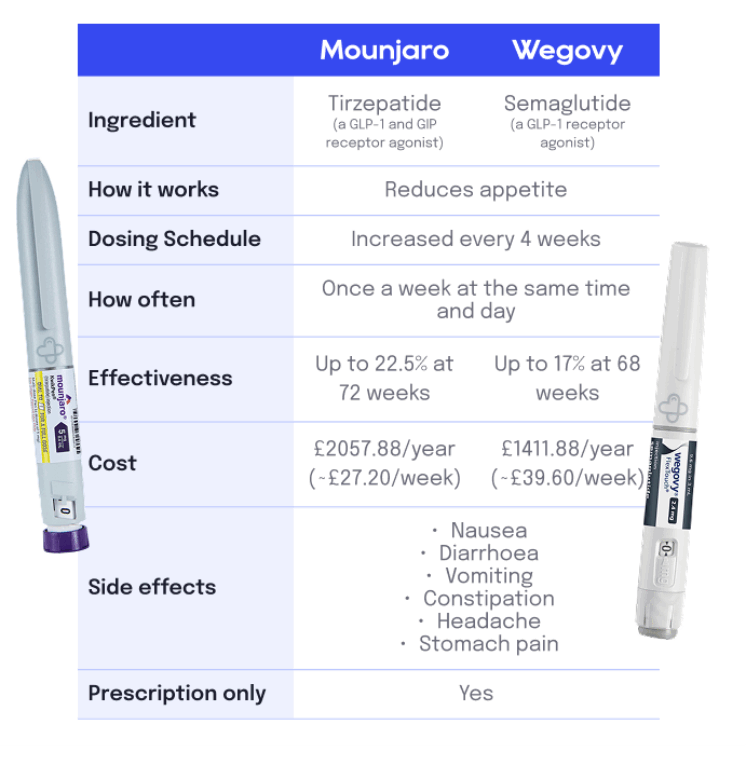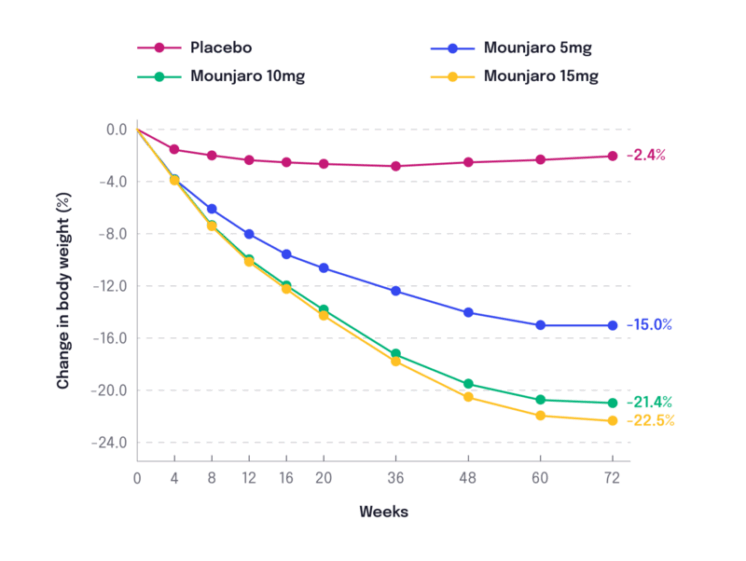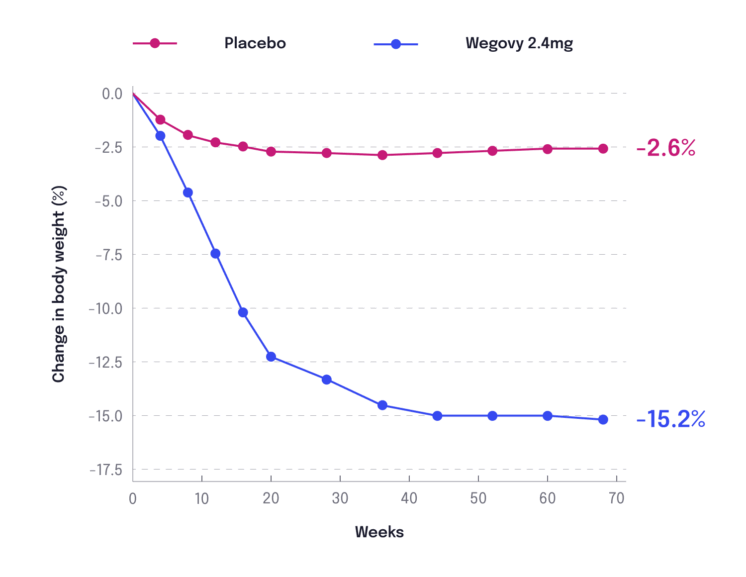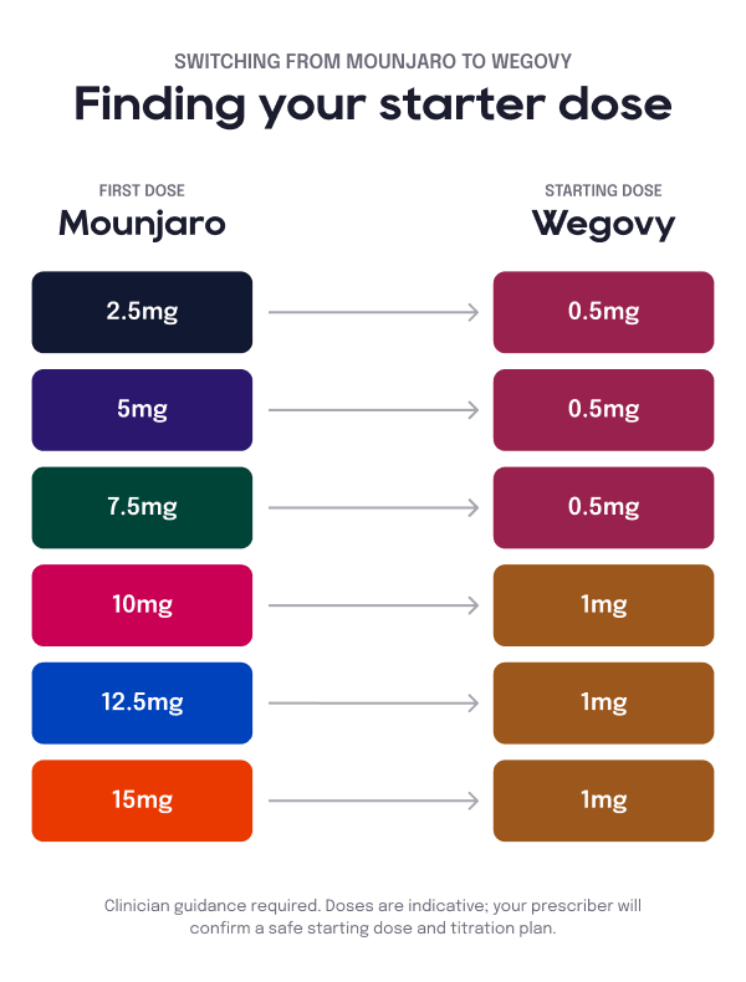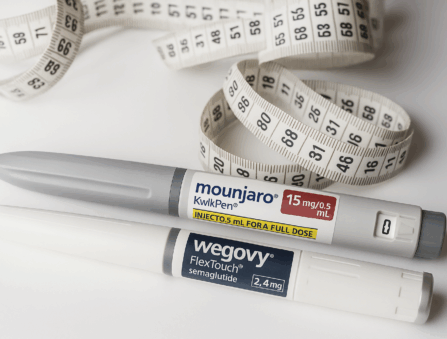
Weight Loss Injections
Chemist Click offers the latest and most effective weight loss injections, including Mounjaro and Wegovy, designed to support healthy, sustainable weight loss.
from
Weight Loss Injections
Making use of discount code WEIGHT20
All inclusive pricing, no hidden charges or fees:
| Dosage | 0.25mg Pen | 0.5mg Pen | 1mg Pen | 1.7mg Pen | 2.4mg Pen | 2.4mg Pen (7.2mg dose) |
|---|---|---|---|---|---|---|
| Price | £113.99 £93.99 | £117.99 £97.99 | £127.99 £107.99 | £156.99 £136.99 | £195.99 £175.99 | £572.40 £552.40 |


